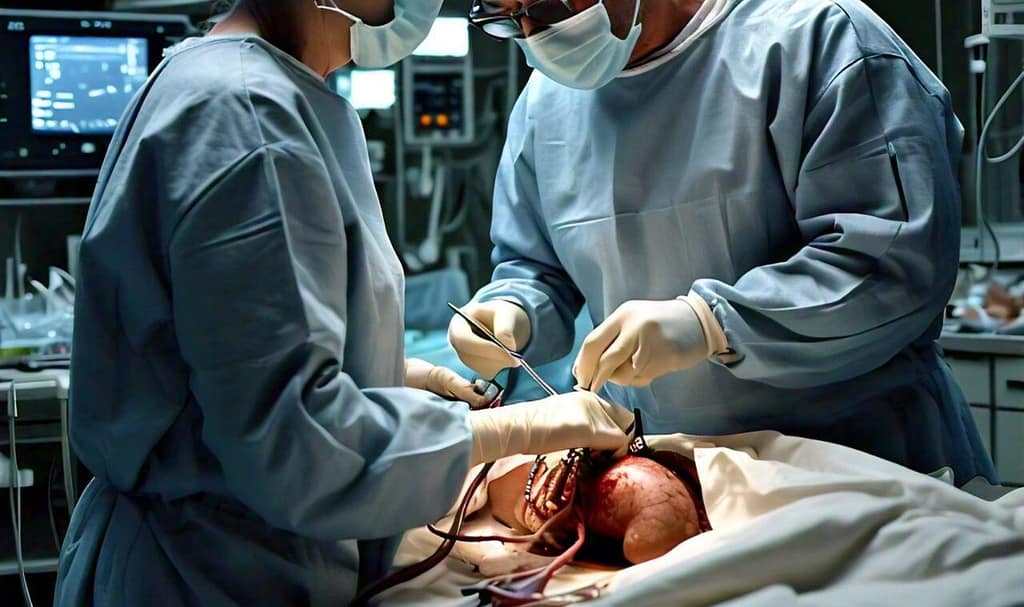

Kidney Transplant Recovery is a long procedure after transplant. Like the body’s natural filtration system, our kidneys are crucial for removing waste and balancing fluids. When kidneys fail, it can be life-threatening, and a transplant often becomes the best option. Understanding the recovery journey is essential for anyone considering or undergoing a kidney transplant.


A kidney transplant is a surgical procedure where a healthy kidney from a donor is implanted into a person whose kidneys no longer work properly. This operation can be life-saving for those with end-stage kidney disease, offering a new lease on life.
1. Living Donor Transplant: This involves receiving a kidney from a living person, often a relative or friend.
2. Deceased Donor Transplant: In this case, the kidney comes from someone who recently passed away.
Preparation includes a series of medical evaluations, psychological assessments, and educational sessions to ensure the patient is ready for the surgery and knows what to expect.
Finding a compatible donor is a critical step. Donors can be family members, friends, or even anonymous individuals. Compatibility is key to the success of the transplant.
You should also Visit: Widow Maker Heart Attack: A Silent Killer
The surgery involves making an incision in the lower abdomen, placing the new kidney inside, and connecting it to the blood vessels and bladder.
Typically, the surgery lasts about 3-4 hours. Patients should be prepared for the entire process, including pre-surgery preparations and post-surgery care.
After the surgery, patients usually stay in the hospital for about a week. This time allows doctors to monitor the new kidney and ensure it starts functioning properly.
The first few weeks are crucial. Patients need to rest and follow their doctor’s advice closely to ensure the new kidney settles in well and begins to work effectively.
These drugs are essential to prevent the body’s immune system from rejecting the new kidney. Patients with these conditions will need to take these medications for the rest of their lives.
Side effects are common and can include increased susceptibility to infections and certain types of cancer. Regular check-ups are necessary to manage these risks.
A healthy diet is crucial. Patients should eat plenty of fruits, vegetables, lean proteins, and whole grains to support their recovery.
Certain foods, especially those high in sodium, potassium, and phosphorus, should be avoided. Alcohol and some supplements might also need to be limited.
Exercise is vital for overall health and well-being. It can help speed up recovery from illness or injury. It’s important to stay active but avoid strenuous activities initially.
Light exercises such as walking, swimming, and yoga are often recommended. Before starting any new exercise routine, it is important to consult your doctor.
Regular visits to the doctor are essential to monitor the new kidney’s function and make any necessary adjustments to medications.
Early detection of rejection is crucial. Symptoms can include fever, reduced urine output, and pain over the transplant site. If this happens, immediate medical help is necessary.
Feeling anxious or stressed is normal. Techniques like meditation, therapy, and joining support groups can be incredibly helpful.
Connecting with others who have gone through similar experiences can provide emotional support and practical advice, making the journey a bit easier.
Most patients can gradually return to work and their daily routines within a few months. It’s important to take things slowly and ensure that each step is done correctly.
Traveling is possible with proper planning. Always carry necessary medications and keep contact information for healthcare providers handy.
Maintaining a healthy lifestyle and staying informed about kidney health can help prevent future issues and ensure the longevity of the transplant.
Good hygiene practices and regular vaccinations are important to reduce the risk of infections, especially when taking immunosuppressants.
Signs of rejection can include fever, swelling, and pain at the transplant site. Regular medical check-ups are essential to catch these signs early.
Long-term use of immunosuppressants can increase the risk of infections and other health issues. A balanced lifestyle and continuous monitoring are key.
Hearing from those who have successfully undergone kidney transplants can be incredibly inspiring and provide valuable insights into the process.
Stories of resilience and recovery highlight the positive outcomes and potential of kidney transplants, offering hope to those on the journey.
Kidney transplant recovery is a journey that requires dedicated medical care, lifestyle adjustments, and emotional support. With the right approach, many patients can lead healthy and fulfilling lives.
1. What is the recovery period after kidney transplant?
Recovery can vary but typically takes about 3-6 months. Full recovery and adjustment to the new kidney may take longer.
2. What lifestyle changes are necessary after a kidney transplant?
Patients need to take immunosuppressants, follow a healthy diet, stay active, and attend regular medical check-ups.
3. Can I travel after a kidney transplant?
Yes, with proper planning and precautions, including carrying medications and having access to medical care.
4. What are the symptoms of kidney transplant rejection?
If you have a fever, decreased urine output, and pain at the implant site, you may have an infection. Regular monitoring is essential.
5. How often should I visit the doctor after a kidney transplant?
Frequent visits are required initially, gradually decreasing over time, but regular check-ups are always necessary.
Can Allergies Make You Cough? Allergy is one of the most widespread diseases or conditions…
Which Vitamin Deficiency Results in Hair Loss? This is a problem that people of all…
Can Gas Cause Back Pain? Sometimes, it is not easy to determine the cause of the…
Can Muscle Knots Cause Wrist Pain? Some of the main causes of pain include muscles…
Can You Drink Alcohol While Taking Steroids? This question of alcohol consumption and steroids is…
Can Allergies Make You Cough? Coughing is a normal physiological response that makes use of…